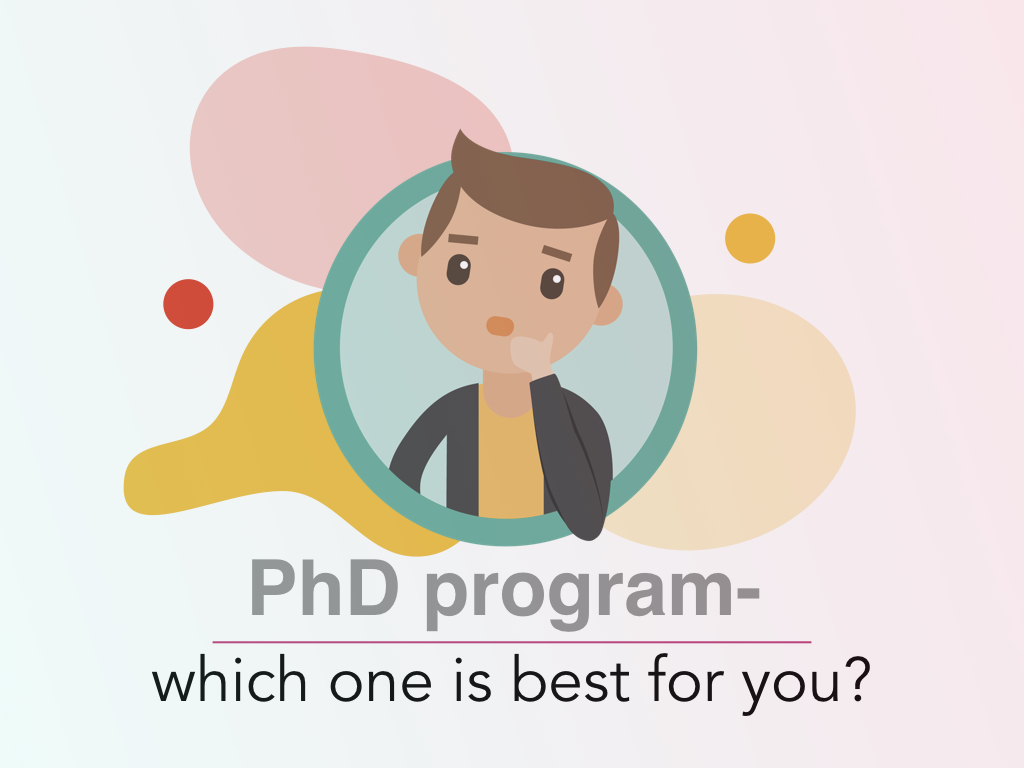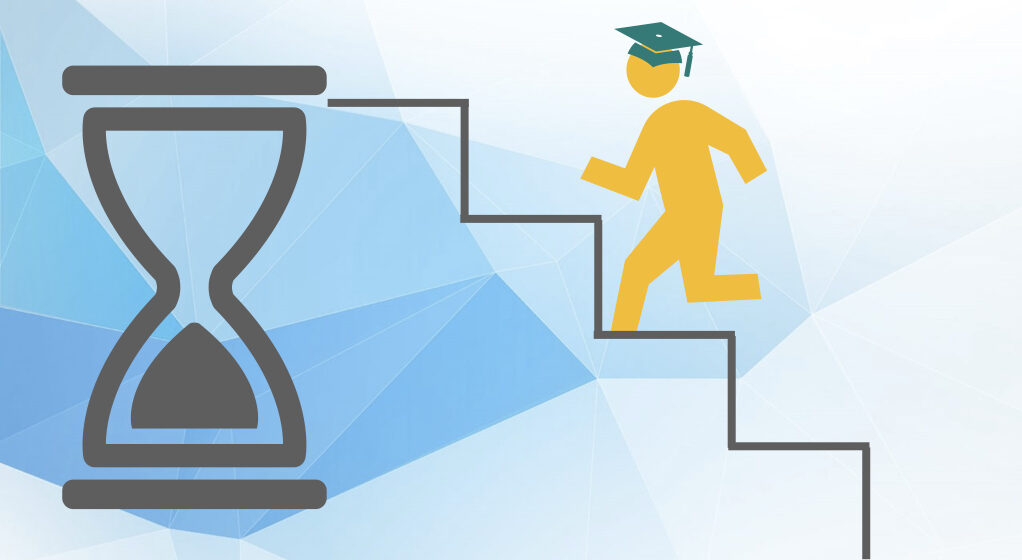Content of the article- how to select a PhD program, complications in each program, various programs for different subject and my guide to select a PhD. The present article is a kind of guidance for those you want to do a PhD but are confused about which subject to choose.
Let me tell you first, in this article I am going to help you in choosing a PhD program based on your subject, interest and expertise. So read the article till the end or jump to your interest subject directly.
Choosing a PhD subject is actually a tedious task, once you selected, you can not drop it. Further, your chance of enrolling second time in PhD also decreases.
Therefore, it is very crucial to select a higher degree subject very carefully, otherwise, you will mess up with a big problem.
As we know, the PhD is an uppermost degree and more a privilege for a person. The Doctor of philosophy is given for achieving a special skill in a specific subject to a candidate. You can read our amazing article on PhD: What is a PhD degree?
The esteem of being a doctor or PhD holder is unmatched. Besides this, the pay scale and earning potentials are sky-scraping too. Therefore, in any education system, the PhD honour is at the highest level.
Rather than saying it as “degree” or “graduation”, I always prefer to say it as privilege or honour because a candidate has to face various problems to achieve it, not all can do that.
Different universities across the world offer a PhD degree in various subjects and disciplines. For instance, a candidate can do PhD in general biology subject as well as in microbiology, zoology, botany or in biotechnology.
Which PhD program is best for you?
First and foremost, you have to choose your main subject during your last couple of years in high school. Commerce, Arts or Science are three main subjects.
In the next stage, in graduation, you have to choose one special discipline from the main subjects.
A science student can choose biology, physics, maths or chemistry. Likewise, an arts student can select literature, music, social science or language. Now you do not have to study other subjects. For instance, if you choose biology, you do not have to study physics or chemistry.
Your journey for PhD starts from your graduation, your subject, you choose during graduation in only consider in PhD. It means that a biology student can only pursue masters and PhD in biology and related discipline, he or she can not apply for any other subject from either arts or commerce.
Keep this point in your mind that cross subjecting is not allowed in any education system. An art student has to go ahead with arts while a science student has to go ahead only with science subjects only.
Now in the next step, you have to understand your interest. Some science students are good in biology but not in chemistry, they feel bored. Therefore doing PhD in chemistry is not at all a good option for them, they even can’t complete it.
This one is the major problem. Students leave their PhD in between because of lack of subject interest. Ultimately their career ruined, they never realised their skills and expertizes and do some boring job throughout their entire life.
You never wish to do work which you don’t like for your entire life, right! So realizing “in which you are best” is very important.
Pisum sativum and Rajasaurus Narmadensis these two are the biological names of a pea plant and a dinosaur found in India, respectively. If you feel irritated while reading these names or you are not willing to learn about it, believe me, biology is not for you. This is just an example. So how you choose which subject you like the most?
When, every time you feel to complete your novel as soon as possible, your interest is in literature definitely. Because you love literature, you feel connected with it. Likewise, if you are fascinated by the historical events or you feel happy by visiting some historic place, instead of chilling on a beach, make sure your interest is more in history.
Discover your interest, which subjects you like the most. It is very essential because you have to pass 5 to 7 years with a single subject in PhD.
A couple of my friends quit PhD because they realise that they can’t work with DNA or chromosome. Even they do not have knowledge about how to make different chemical solutions. They have to leave their PhD before in between. Never make these mistakes.
Now after that, decide what you are best at!
Account, statistics, mathematics, economics, human resource and marketing are some of the commerce subjects. It is obvious! You may not be the best of them all. If you can sell things easily. Marketing should be your next main subject in masters.
Even if you don’t like to read marketing book, believe me, if your practical expertise is more in marketing, close your eyes and go with it.
I think we will continue this example further.
So after your higher schooling, you have selected commerce in graduation, marketing- one of the subjects from commerce, in master’s degree. Now you have to choose which marketing course or PhD program suits you.
Suppose, if you like social media, computer, internet and online stuff, you can work for a long time on the computer without getting bored and you are keen to explore more on the internet.
You can lift your marketing skill one step ahead with all these, select online marketing or digital marketing or social media marketing subject in your PhD program.
You can spend your 5 to 7 years of PhD duration with this subject. This is how you can select your PhD program based on your stream, subject, interest and expertise.
Read more: How to Write a PhD Thesis?
Now let us discuss some of the common PhD programs in various fields.
PhD programs for arts:
All languages across the world (like English, Spanish, Hindi, Chinese etc), literature, humanities, social science, history, geography, political science, Psychology, Sociology, music, dance, Fine arts, multimedia, fashion and designing, philosophy, physical education are the major subjects in arts.
However, language, philosophy, psychology and fine arts are more popular.
PhD programs for commerce:
Economics, Accounting, Finance, marketing, statistics and mathematics are several popular PhD subjects for commerce.
PhD programs for science:
Science is a vast field. There are many different subjects and interdisciplinary in it. Some of the common and popular subjects for doing PhD in science are:
Biology, Physics, chemistry maths and environmental science.
Biology: Zoology, botany, molecular biology, genetics, cytogenetics, biotechnology, Plant genetics, plant physiology, animal science, animal husbandry, veterinary science, medicines, Pharmacy, microbiology, biotechnology, fishery, Agriculture, horticulture and forest science are some of the common sub-discipline or subjects for biology.
Physics: pure physics, quantum physics, mechanics, physical chemistry, astrophysics, nanoscience, biophysics, optical physics, molecular physics, energy and particle physics and atomic physics are some of the popular subjects for PhD.
Chemistry: Pure chemistry, organic chemistry, inorganic chemistry and biochemistry are some of the popular PhD in chemistry programs.
Nowadays, various types of PhD programs are available depending upon our suitability. For instance, in online PhD programs, you do not need to go to college. It is categorised in two different groups,
- Online vs offline
- Part-time vs full time
Online vs offline:
In an online PhD program, a candidate doesn’t need to go to college. All their works are done on the computer with the help of internet. However, online courses are usually not available for science and biology. Subjects related to computer science & communication, Psychology, physiology, history, literature, language and social science are popular for online PhD.
Although online PhD programs give the flexibility to work, unavailability of guide or supervisor makes it harder to complete on time. On the other side, the offline PhD programs are more beneficial, those are either full-time or part-time.
Full-time vs Part-time:
During full-time PCR, a candidate should have to go college regularly. As their guide or PhD supervisor is always available, their PhD work completes on time.
On the other side, the Part-time PhD’s are for those who are working or doing a job. Although it is very hard to complete work on time.
Part-time research is the best option for those who are expert or experienced in their filed. They can complete their work in the absence of their supervisor. Further, flexibility is also an advantage of a part-time PhD.
Conclusive, if your interest is more in computer and related field go for online PhD. otherwise, get admission in some reputed universities. If you are a biology student, prefer to go for full-time PhD programs. For other streams and subjects, either offline or part-time PhD can be done.
If you are doing a job, choose some online or part-time PhD program, try to select topic which is related to your job or work.
Recommended subjects for online PhD:
History, language, computer science, cybersecurity, ethical hacking, computer networking, language, physiology, psychology, social science, literature or other.
Recommended subjects for offline or full-time PhD:
Biology, physical science, chemistry, biotechnology, microbiology and environmental science.
Further Read: PhD Job Opportunities and Expected Salary
Conclusion:
In a final note, we can say, choosing a PhD program depends on your interest, passion, expertise and overall knowledge on the subject and stream you select.
Doing a PhD is a tough task but not impossible. You need to have patience and courage to do. Because many problems you have to face during your PhD tenure of 4 to 6 years.

Dr. Tushar Chauhan is a Scientist, Blogger and Scientific-writer. He has completed PhD in Genetics. Dr. Chauhan is a PhD coach and tutor.




